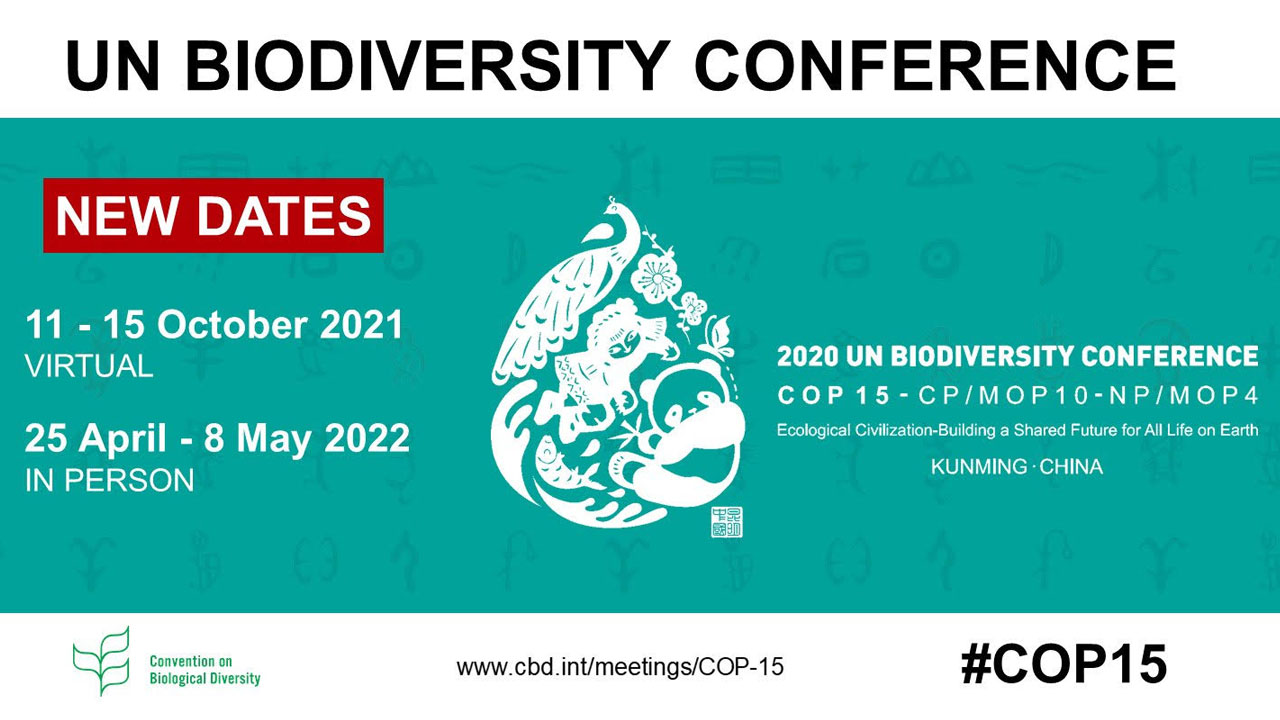CoPs & Dodgers! Defining steps to reduce the global crises

It is now just weeks until the world’s governments meet to decide the necessary steps for addressing biodiversity loss and climate change.
…
CoP15 (11 – 15 October) will consider global actions to reverse biodiversity loss, whilst CoP26 (31 October – 12 November) will consider global climate action. Both events will bring together the governments of most nations (a Conference of the Parties) to negotiate and agree targets and actions to tackle these increasingly imposing crises, now regarded as interconnected issues requiring a joined-up approach (IPBES & IPCC, 2021).
There is, of course, concern that there will be ‘the dodgers’, those who fail to recognise the threats and act on their responsibilities, and others who may still claim there is nothing to worry about. But the facts, and the evidence of the need to act, couldn’t be clearer. Stark reports show that Planet Earth is facing its 6th Mass Extinction of wildlife, with biological diversity disappearing and threatening our reliance on fresh air, water, food, and wellbeing (etc.), as well as contributing to the ever-eventful severe weather. These issues affect us all. There is literally no room for dodgers at these CoPs!
The scientific community has clearly presented the case: a “Code red for humanity” where “big systematic changes [are needed] and fast” to address “the huge scale of the challenges we are facing” (IPCC & IPBES, 2021). Whilst this is difficult reading, particularly at a time when the travel and tourism sector is seeking to bounce back following the pandemic, still we must act. While our governments decide on the CoP targets, we, as businesses and individuals, must not dodge our responsibilities. We must act now to minimise negative impact and adopt the necessary measures to fulfil biodiversity protection targets.
ANIMONDIAL, the specialist consultancy that advises the travel and tourism sector on all matters concerning animal and nature protection, has adopted the call to action: “Build Back Better for Animals”. It recognises that such an action will not only seek to reverse biodiversity loss, but also reduce climate change. Pursuing this mandate provides a valuable opportunity for the travel and tourism sector to become a driver of positive change, counterbalancing its unavoidable impacts with widespread direct and indirect benefits. ANIMONDIAL’s initiatives provide travel businesses with the means to identify and minimise impacts while supporting nature-based solutions: actions already aligned to the (anticipated) CoP15 outcomes.
ANIMONDIAL’s step-by-step approach will certainly cater for those businesses already looking to make strides to fulfil their biodiversity protection and climate action obligations, while the rest will wait for CoP outcomes, legal requirements, and likely incentives.
But why wait?
In fact, we already know the probable outcomes of CoP15, as presented by the Post-2020 Global Biodiversity Framework, which governments are currently considering. The High Ambition Coalition (HAC) for Nature and People, a group of 60 countries chaired by Costa Rica, France and the UK, is pushing for far-reaching, concrete action on biodiversity. It joins UNEP and multiple NGOs in advocating, as a minimum, the goal of putting 30% of global land and sea area under protected status by 2030. Some supporters include additional milestones such as a 5% increase in the “area, connectivity and integrity of natural systems” and the halting or reversing of the current increase in the global extinction rate.
These are all measures that can become objectives for the Travel and Tourism sector. Nature is already integral to much of the tourism product offering and the destinations we all love to visit. Ensuring its protection, and where possible, regeneration, will incentivise the better protection of nature and wildlife, from community to government levels, through the benefit of tourism revenues. This presents a relatively simple nature-based solution to counterbalance tourism’s unavoidable impacts.
Reducing carbon emissions is the current call to arms, and this is certainly required. But as travel businesses, emission reductions will always be limited. However, tourism’s ability to better protect animals and nature is a huge opportunity to fulfil obligations addressing both biodiversity loss and climate change.
How to Build Back Better for Animals

ANIMONDIAL’s path to nature-based solutions through tourism
» Check out ANIMONDIAL’s Services
» Join our mission to Build Back Better for Animals

